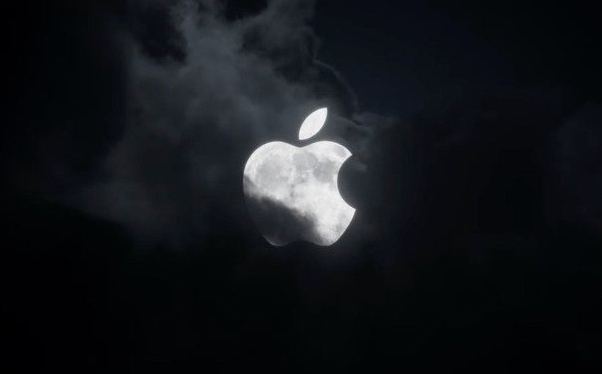"Other" storage on your Mac includes system files, caches, hidden files, disk images, application support files, iOS backups, and more; 1. Check Downloads for old installers; 2. Use macOS Storage Management to review large files and optimize storage; 3. Clean up ~/Library/Caches, ~/Library/Application Support, and ~/Library/Developer; 4. Delete old iOS backups in Finder; 5. Optionally use tools like DaisyDisk to identify space hogs, reclaiming gigabytes safely by removing unnecessary files.

"Other" storage on your Mac refers to files that don’t fall neatly into the standard categories like Apps, Photos, Documents, or System. It’s a catch-all category in macOS Storage Management that includes a variety of file types, which can sometimes make it confusing because it’s not immediately clear what’s taking up space.

What’s Included in "Other" Storage?
"Other" typically contains a mix of the following:
- System files and caches: Temporary files, logs, and cached data used by macOS and apps.
-
Hidden files and folders: Files not visible in Finder, such as
.dotfilesor configuration files. -
Archives and disk images:
.dmg,.iso,.zip, or.tarfiles you’ve downloaded or created. - Miscellaneous documents: Files with uncommon extensions or those not recognized as standard media, PDFs, or text files.
- Language files and plugins: Extra language packs, fonts, or third-party plugins (e.g., audio plugins, browser extensions).
-
Application support files: Data stored by apps in
~/Library/Application Supportor/Library. - Old iOS backups: iTunes or Finder backups of iPhones and iPads.
-
Installation packages: Leftover
.pkginstallers or software updaters.
Why "Other" Can Get Large
Over time, small files accumulate in the background. For example:

- Apps you no longer use may leave behind support files.
- Downloaded disk images (like DMGs for software) often stay in your Downloads folder.
- System and browser caches grow, especially if you don’t restart your Mac often.
How to Reduce "Other" Storage
If "Other" is taking up too much space, here’s how to clean it up:
-
Check your Downloads folder
Look for old.dmg,.zip, or installer files you no longer need.
-
Use macOS Storage Management
Go to ? > About This Mac > Storage > Manage. From there, you can:- Review and delete large files.
- Optimize storage (e.g., offload watched iTunes movies).
- Store files in iCloud.
- Review "Documents" and sort by size to find hidden large files.
-
Clean up Library folders
Use Finder > Go > Go to Folder to check:-
~/Library/Caches– safe to delete contents. -
~/Library/Application Support– look for apps you’ve removed. -
~/Library/Developer– safe to remove if you’re not doing app development.
-
Remove old iOS backups
In Finder (macOS Catalina ), go to Devices under Locations and delete old phone backups.Use third-party tools (optional)
Apps like OmniDiskSweeper, DaisyDisk, or CleanMyMac can visually map your disk usage and help identify large files in "Other."
Just be cautious—don’t delete files from system folders unless you’re sure what they are.
Basically, "Other" isn’t mysterious—it’s just a mix of everything macOS doesn’t classify elsewhere. With a little cleanup, you can often reclaim several gigabytes.
The above is the detailed content of What is 'Other' storage on Mac?. For more information, please follow other related articles on the PHP Chinese website!

Hot AI Tools

Undress AI Tool
Undress images for free

Undresser.AI Undress
AI-powered app for creating realistic nude photos

AI Clothes Remover
Online AI tool for removing clothes from photos.

Clothoff.io
AI clothes remover

Video Face Swap
Swap faces in any video effortlessly with our completely free AI face swap tool!

Hot Article

Hot Tools

Notepad++7.3.1
Easy-to-use and free code editor

SublimeText3 Chinese version
Chinese version, very easy to use

Zend Studio 13.0.1
Powerful PHP integrated development environment

Dreamweaver CS6
Visual web development tools

SublimeText3 Mac version
God-level code editing software (SublimeText3)

Hot Topics
 Can I Show the Dock on All Screens on Mac? Using Dock on Different Displays in macOS
Jul 03, 2025 am 09:30 AM
Can I Show the Dock on All Screens on Mac? Using Dock on Different Displays in macOS
Jul 03, 2025 am 09:30 AM
If you're using a Mac with multiple monitors, you might be curious about how to display the Dock on all screens or whether it's possible to add a Dock to secondary displays.The good news is that you can configure the Dock to appear on any screen conn
 How to Play Fortnite on Mac with FnMacAssistant & Sideloadly
Jul 05, 2025 am 09:21 AM
How to Play Fortnite on Mac with FnMacAssistant & Sideloadly
Jul 05, 2025 am 09:21 AM
Fortnite is once again available for iPhone and iPad users, bringing joy to many gamers. However, there's still no official version for Mac (at least not yet). Despite that, Apple Silicon Mac owners aren’t completely out of luck—you can run the iOS/i
 How to Remove Old Devices from Apple ID on Mac
Jul 07, 2025 am 09:08 AM
How to Remove Old Devices from Apple ID on Mac
Jul 07, 2025 am 09:08 AM
If you've owned multiple Apple devices over the years, you might find yourself in a situation where some of those older Macs, iPhones, iPads, or other Apple hardware have been sold, given away, or traded. No matter how they left your possession, it's
 How to Enable iCloud Private Relay on Mac
Jul 05, 2025 am 09:36 AM
How to Enable iCloud Private Relay on Mac
Jul 05, 2025 am 09:36 AM
iCloud Private Relay is an excellent privacy feature included with the iCloud subscription, designed to safeguard your online activity and browsing by masking your IP address (using a temporary one) and encrypting DNS lookups. This prevents third pa
 How to Allow Apps During Downtime on Mac
Jul 04, 2025 am 09:03 AM
How to Allow Apps During Downtime on Mac
Jul 04, 2025 am 09:03 AM
Are you using Screen Time to manage your or your child’s Mac usage? If yes, you likely already know that it allows you to set app limits, schedule downtime on the Mac, and more. Additionally, you can also choose specific apps that remain accessible a
 How to Make MacOS Sequoia Feel Faster: Tips to Speed Up Slow MacOS
Jul 05, 2025 am 09:28 AM
How to Make MacOS Sequoia Feel Faster: Tips to Speed Up Slow MacOS
Jul 05, 2025 am 09:28 AM
macOS Sequoia is a solid operating system that brings some impressive features like iPhone Mirroring, and while performance is excellent for many users, not everyone experiences the same level of speed. If you're finding macOS Sequoia slower than pre
 How to See All Links Shared in Messages on iPhone & iPad
Jul 05, 2025 am 09:31 AM
How to See All Links Shared in Messages on iPhone & iPad
Jul 05, 2025 am 09:31 AM
If you frequently use iMessage, then you've likely shared numerous web links in your chats — maybe an article, a video, a tweet, a song, or anything else. Locating these links later can be quite frustrating, but thankfully there's a simpler method th
 Create a MacOS Tahoe 26 Beta VM with Three Commands in Terminal Using tart
Jul 06, 2025 am 09:28 AM
Create a MacOS Tahoe 26 Beta VM with Three Commands in Terminal Using tart
Jul 06, 2025 am 09:28 AM
Advanced Mac users familiar with the command line can swiftly set up a MacOS Tahoe 26 beta virtual machine by entering a few commands into Terminal, using tart. Tart is a command-line utility for managing virtual machines and offers one of the quicke







